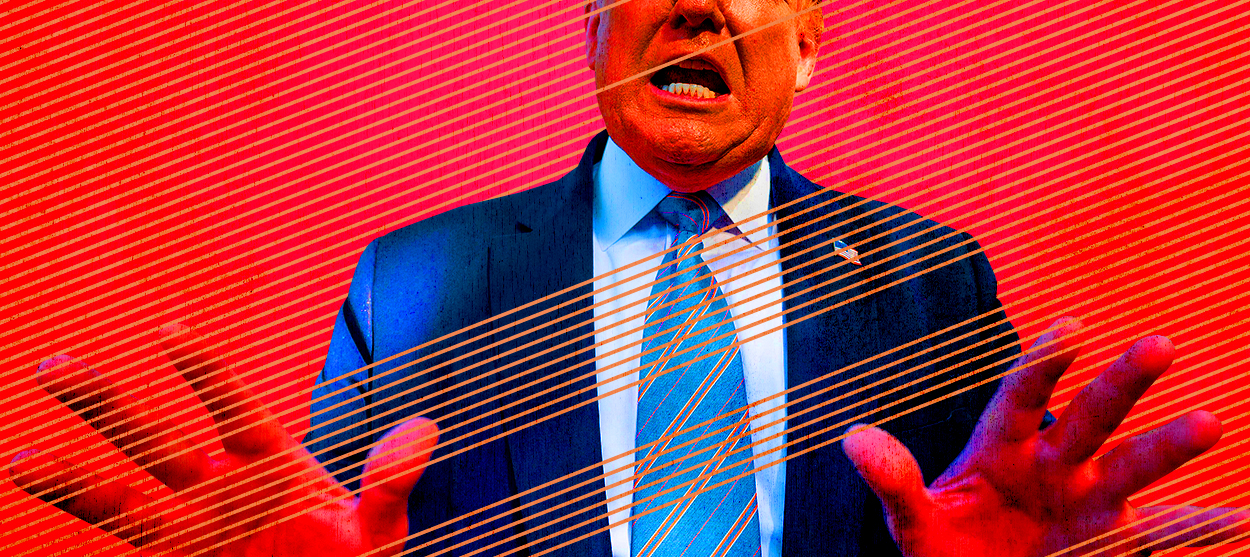Trump's fraud allegations are why Republicans like him
The president is drawing upon years of Republican lore about voter fraud and feckless politicians too willing to capitulate


A free daily email with the biggest news stories of the day – and the best features from TheWeek.com
You are now subscribed
Your newsletter sign-up was successful
It was 1994 and Ellen Sauerbrey was poised to become the first Republican governor of Maryland since Spiro Agnew. She led Democrat Parris Glendening for much of the night. Then boom! At the end, a vote dump mainly from Baltimore put her behind. The Democrat was declared the winner of the state's closest gubernatorial election in 75 years, beating Sauerbrey by 5,993 votes.
Sauerbrey alleged fraud. Ballots were cast in the names of dead or imprisoned voters, especially in the big Democratic city of Baltimore. She contested the election, which her supporters adamantly believed was stolen. She even attended a Republican Governors Association meeting with other GOP governors-elect, although some placards described her only as "Ellen."
That was as close as she ever came to becoming governor. Sauerbrey lost on appeal. While judges acknowledged there were irregularities, they did not find enough evidence to overturn the result or order a new election.
The Week
Escape your echo chamber. Get the facts behind the news, plus analysis from multiple perspectives.

Sign up for The Week's Free Newsletters
From our morning news briefing to a weekly Good News Newsletter, get the best of The Week delivered directly to your inbox.
From our morning news briefing to a weekly Good News Newsletter, get the best of The Week delivered directly to your inbox.
Republican lore is full of stories about dead people voting and big Democratic political machines stealing elections since the days of Tammany Hall. Fifty years before today's fights over Pennsylvania, Michigan and beyond, 40 years before Florida's hanging chads, Richard Nixon was narrowly defeated by John F. Kennedy — thanks, many to this day maintain, to Chicago Mayor Richard Daley and the Cook County Democrats' malfeasance.
It is in this context that we must view President Trump's defiance in the face of what appears to be a looming defeat at the hands of Joe Biden. Republicans went to bed with Trump ahead in several battleground states. Counting mysteriously stopped. They awoke in many cases to find Trump trailing.
When Trump alleges "fraud" and vows to prevent the disenfranchisement of his voters, many political observers are shocked and dismayed. Nixon always claimed he did not contest 1960 because he thought it would be bad for the country. Trump is challenging several states' official count from the White House as a sitting president, in far less careful terms than his lawyers will.
Yet to many Republicans, Trump is standing up for himself and them in a way they don't believe prior nominees would. He is simply not going to take what a garden-variety Republican politician would. To the grassroots, Mitt Romney and John McCain were always eager to be good losers, to be hailed by The New York Times and the chablis-sipping liberals of the Georgetown cocktail party circuit for their magnanimity and decency in defeat.
A free daily email with the biggest news stories of the day – and the best features from TheWeek.com
Trump says nuts to that. "But he fights!" has become a punchline to many as they've watched Trump belt himself in the face. It is nevertheless precisely what binds Trump so closely to his base, which delivered a far closer election than most pollsters predicted. The reason we can even argue about the ballot count in Michigan or Arizona is that the election was actually competitive even as forecasters began to see a blue wave or Biden landslide coming.
In this telling, the president is not just fighting for his own re-election. He is fighting for Richard Nixon. He is fighting for Ellen Sauerbrey. He is fighting for every Republican who simply shut up and went away when the media told him to be a good loser and take his medicine.
To explain this viewpoint isn't necessarily to endorse it. A closely scrutinized election with this kind of turnout is bound to produce irregularities if you look for them. The partisan tilt of the mass early and mail-in voting may legitimately produce huge tranches of Democratic votes that superficially look like a tally for a Third World dictator. We should also be careful about provoking a constitutional crisis, preferring Vice President Mike Pence's talk of vigilance to Trump's outright assertion of fraudulence.
Democrats have their own stolen election stories. Al Gore will go to his grave believing he won Florida. Hillary Clinton has not softened in her view that Russia helped deliver the White House to its current occupant. John Kerry may even still believe he carried Ohio.
But Republicans have at the rank-and-file level become the party of voter ID because to them it is axiomatic that if you let an election get too close, the big-city liberals will steal it. Trump may lose to these Democrats, but he'll be damned if he ever plays by their rules. And thus the very tendencies that horrify detractors who see in Trump a budding authoritarian, hostile to our small-d democratic norms, thrill beleaguered Republicans.
W. James Antle III is the politics editor of the Washington Examiner, the former editor of The American Conservative, and author of Devouring Freedom: Can Big Government Ever Be Stopped?.
